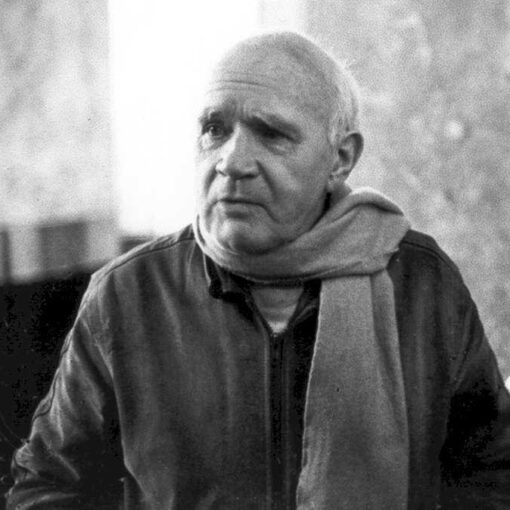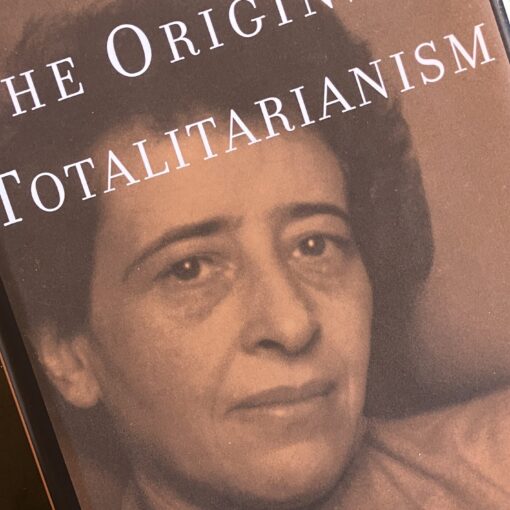By William E. Scheuerman
Commemorations of the 100th anniversary of the founding of the Institute for Social Research—the Frankfurt School—have taken place around the world this year, many of them at prestigious universities and featuring key contemporary representatives. My general impression of those events is that they have neglected a crucial and still relevant conjuncture in the Institute’s history. That neglect points to some unfortunate lacunae within more recent Frankfurt-oriented critical theory.
By 1941, Friedrich Pollock—the Institute’s resident political economist—had embraced the idea that a qualitatively new form of capitalism had begun to take a recognizable shape. Its concrete forms were undeniably diverse—they ranged from Nazi Germany, Stalinist Russia, to New Deal America. Yet all of them shared one overriding trait: though each variety remained identifiably capitalist, the state had come to play a profound and perhaps predominant role in their operations. In this qualitatively new mode of state capitalism, Pollock wrote, “all basic concepts and institutions of capitalism have changed their function: interference of the state with the structure of the old economic order has by its sheer totality and intensity ‘turned quantity into quality,’ transformed monopoly capitalism into state capitalism.”[1] Although state capitalism remained an “ideal type” (in the Weberian sense) and thus never fully realized, political imperatives had effectively supplanted the workings of the “free” market and the central functions that accrued to it during capitalism’s liberal phase.[2] State economic involvement was not only widespread but increasingly entailed the more-or-less direct planning and administration of prices and wages. Profit making was, to an ever great extent, subordinated to state-determined political goals; investment decisions even by “the mightiest combines” were shaped fundamentally by political decisions.[3] A growing gap between de facto and de jure capitalist control over property took on new and strikingly far-reaching forms, with capitalists tending to be reduced to “rentiers.”
For Pollock these trends pointed to an unprecedented shift in bourgeois society—the end of “the primacy of production,” a constitutive element of liberal capitalism and, correspondingly, arguably the most noteworthy socio-theoretical feature of classical Marxism. State capitalism seemed instead to rest on the “primacy of politics,” with the very idea of an autonomous economic sphere “into which the state should not intrude, essential for the era of private capitalism…radically repudiated.”[4] The state had replaced not only market mechanisms but effectively taken over vital functions previously left to private capitalists. The “primacy of politics over economics, so much disputed under democracy, is [thus] clearly established.”[5] The state was “primary,” if only in the last instance, because it effectively determined the contours of capitalist production.
Those familiar with the history of the Frankfurt School already know that Pollock’s views ignited a lively debate between and among the diverse group of scholars who composed its ranks. Most importantly, Pollock’s thesis quickly gained the imprimatur of the Institute Director (and life-long friend), Max Horkheimer, who would go on to reproduce its key features in a series of important publications. Theodor Adorno would tap it as well; many of his hugely influential postwar writings presuppose elements of it. In contrast, Franz Neumann, Otto Kirchheimer, and Herbert Marcuse pushed back, with Neumann leading the charge in Behemoth: The Structure and Practice of National Socialism, 1933-1944 (1944). Their criticisms remain pertinent; during my comments in the seminar I will highlight their relevance for contemporary Frankfurt-oriented critical theory. But for now let me instead make two easily overlooked observations.
First, Pollock’s general project remains timely. If one looks, for example, to contemporary China, where the state (and party) are deeply intermeshed in every aspect of what in many ways constitutes an identifiably capitalist economy, and where many “entrepreneurs” live in fear of overstepping politically determined boundaries to their activities, the notion of state capitalism possesses some real plausibility. I am neither a China expert nor an economist, but Pollock’s theory does not seem like a bad place to start for those trying to make sense of developments there. Elsewhere, including liberal societies subjected to decades of far-reaching neoliberal restructuring, the state remains a decisive player: pace neoliberalism’s ideologues, it has not for the most part meant “rolling back” state intervention but instead its reconfiguration—admittedly, mostly to the advantage of private capitalists who ferociously resisted mid-century efforts to reduce their status to that of mere “rentiers.” Even if in hindsight Pollock mistakenly overgeneralized on the basis of some key economic trends, his ideas provide a useful starting point for thinking about the massive shifts that have in fact transpired.
Second, the debate about state capitalism reminds us that during some of its most intellectually productive years the Institute for Social Research not only engaged in theoretically motivated interdisciplinary social research but envisioned political economy as central to that project. Of course, first-generation critical theory always involved a wide range of intellectual endeavors. Yet, in order to say something intellectually serious about capitalist society it relied on rigorous social scientific research, along the lines Pollock—and also Neumann and others—endeavored. Looking back at the writings of Pollock and his Institute interlocutors, one can only marvel at the attention they paid to both real-life trends within contemporary political economy and relevant debates among mainstream economists and social scientists.
Unfortunately, one would be hard-pressed to identify similarly productive exchanges involving contemporary Frankfurt critical theory. For many reasons, critical theory today is almost exclusively the purview of cultural and literary critics, philosophers, political and social theorists, and historians of ideas: the stultifying academic division of labor under which we work means that it has had an exceedingly limited impact on empirically minded social scientists, and none as far as I can tell on economists.
To be sure, many recent voices have worried about the lack of Kapitalismuskritik within contemporary Habermasian critical theory. But even so, we still find nothing along the lines of what Pollock and others attempted. For example, even as Nancy Fraser’s provocative Cannibal Capitalism (2022) again foregrounds the centrality of a critical view of capitalism, it rests on many implicit—and arguably underdeveloped—empirical claims about contemporary political economy that require much more careful attention. One possible danger is that this very real theoretical and political lacuna might reopen the door to precisely what Pollock and other Institute members so creatively resisted in 1941, namely: remnants of traditional Marxist orthodoxy that downplay far-reaching and potentially fundamental transformations to capitalism that have taken place, relating in many instances to the large and sometimes formative role played by state institutions.
Notes
[1] Friedrich Pollock, “Is National Socialism a New Order?” Zeitschrift für Sozialforschung, vol. 9 (1941), 445.
[2] Pollock, “State Capitalism,” Zeitschrift für Sozialforschung, vol. 9 (1941), 200-25.
[3] Pollock, “Is National Socialism a New Order?”, 448.
[4] Pollock, “State Capitalism,” 207.
[5] Pollock, “Is National Socialism a New Order?”, 453.




